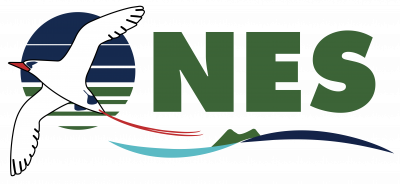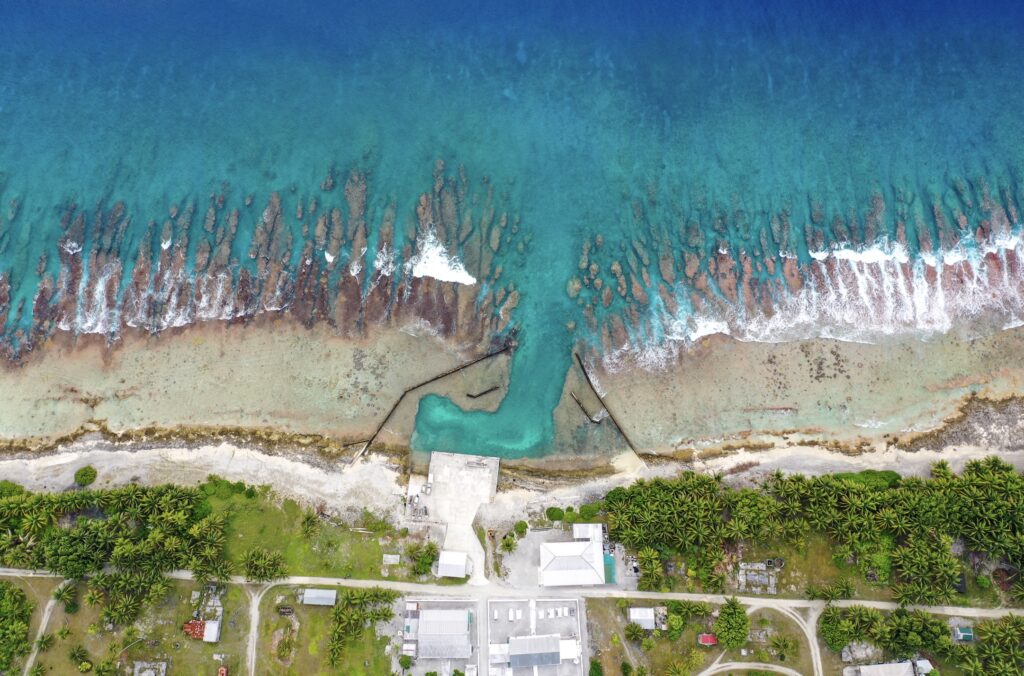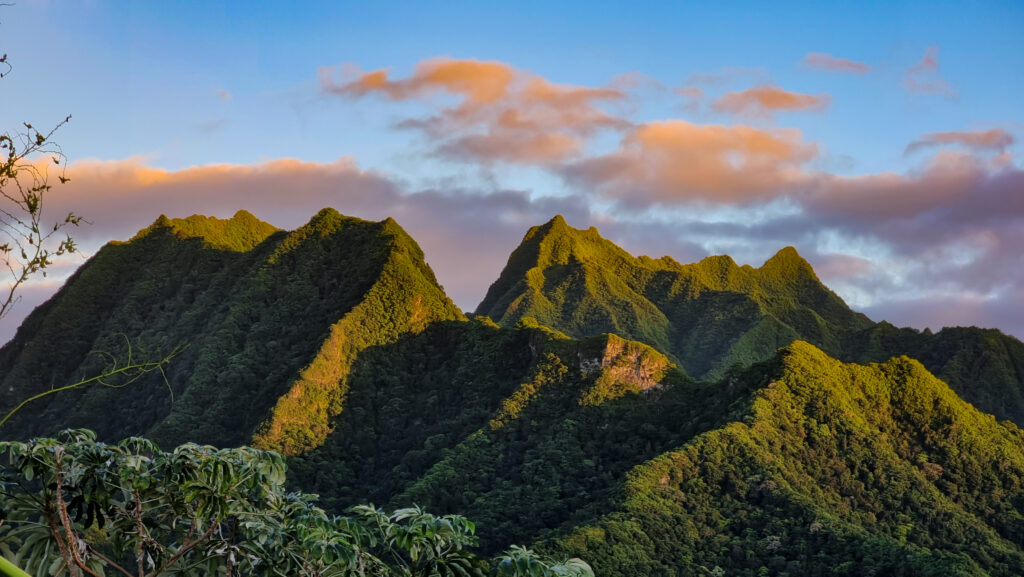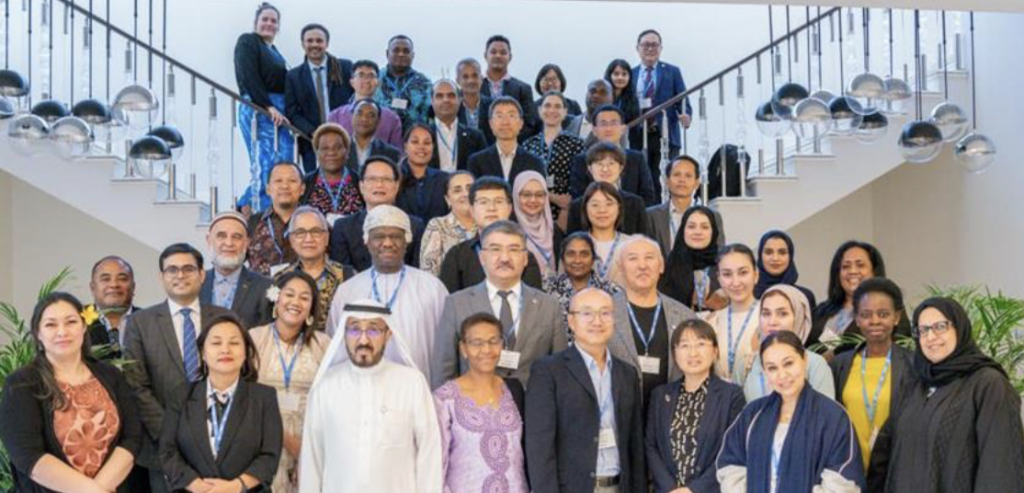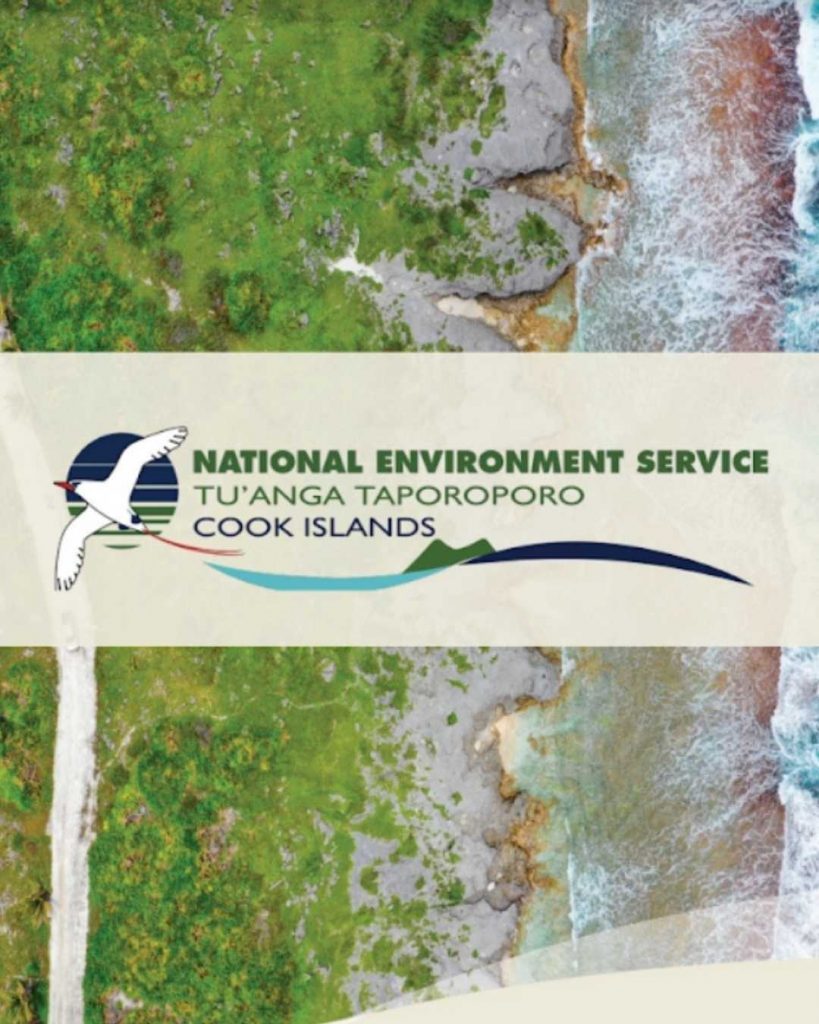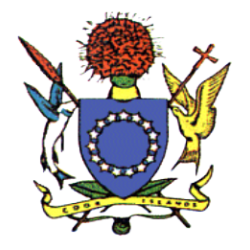The National Environment Service (NES) conducted a waste audit in Manihiki with the assistance of the Island Government key officials – Justine William, John McLeod and Joseph Joseph.The survey covered every property on Tauhunu, whereas Tukao had selected sites with known waste.
The main purpose of the survey is to collect bulky waste data from the Pa Enua for effective decision making. The Pa Enua have limited land areas to effectively store bulky waste that is increasing significantly.
There were other findings from the survey that will assist with the planning process. Many old refrigerators and freezers are repurposed for holding water for livestock. Some of the wastes are appliances with toxic refrigerants. These will need to be addressed through licensed refrigerant handlers to avoid leakage into the environment.
Both islands have stockpiles of abandoned or unused pearl farm floats on land. It is estimated that the number of floats is in the thousands. Many of the land-based piles of floats are deteriorating and are unusable. Holed floats create shards of hard plastic waste and are increasing in quantities. The waste disposal area is exposed to tidal surges and can swiftly transfer plastic waste into the open ocean.
The decline in pearl farming has also forced some farms to be abandoned. Many floats attached to ropes rise to the surface over time, hence creating a navigation hazard in many areas of the lagoon. Reusing of the abandoned floats is an option that is only viable if pearl farming activities increase.
In the next year, NES will work closely with the Manihiki Island Government to remediate waste through collections and removal from the island. This is facilitated through the GEF ISLANDS Project which will start in the next financial year. Management plans are to be revisited on how various sectors and communities manage their waste.
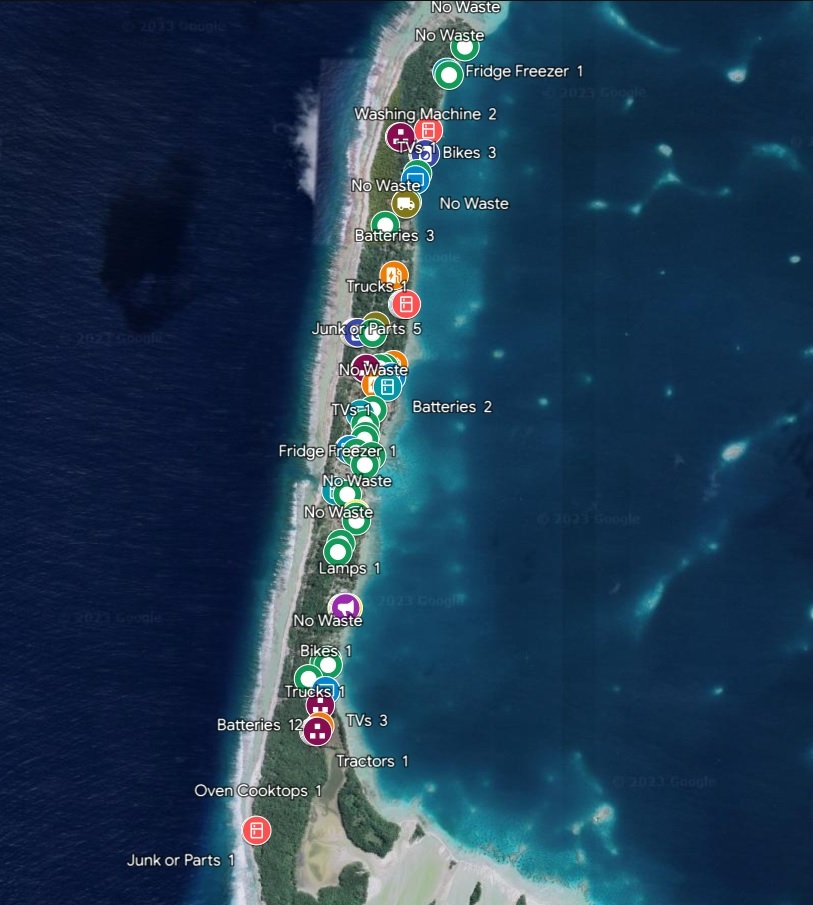
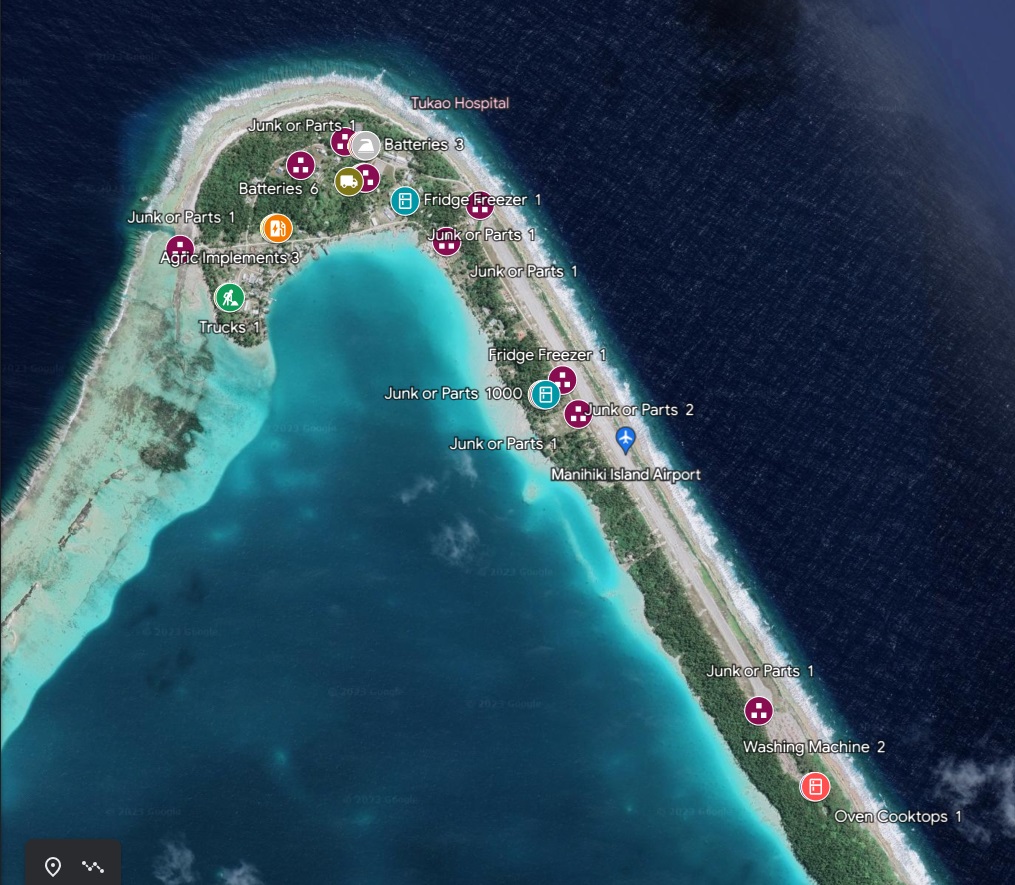
Manihiki, Cook Islands
L-R: Tauhunu & Tukao villages
